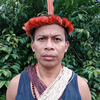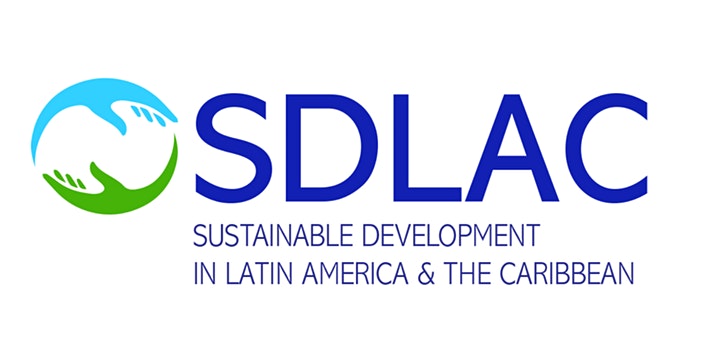List of Presenters
 | Anu El Accompong Maroons, Cockpit Country, Jamaica |
Anu El is the Ambassador Plenipotentiary for the Accompong Maroon Government, which is situated in the Sovereign Maroon territory known as Cockpit Country on the island of Jamaica. He will be speaking about his community’s experiences defending their ancestral lands from the ongoing expansion of commercial bauxite mining projects, which have resulted in severe human health, environmental, and agricultural impacts throughout Jamaica.
| Panel 1: Socioecological conflicts in Latin America and the CaribbeanSat 4/23 10:30am EDT |
 | Manuel Estrada REDD+ and AFOLU Director, Verra |
 | Silvia Llamas Coordinator of Operations in Pronatura Sur A.C |
Coordinator of Operations in Pronatura Sur A.C., organization that serves as the GCF Task Force Country Coordinator in Mexico. Mexican with a degree in Biology and a Master’s degree in environmental studies and social development. More than 15 years of experience in institutional strengthening, planning, implementation, supervision and coordination of projects, programs and strategies on conservation and environmental issues. During her professional career, has collaborated in initiatives focused on environmental conservation, natural resource management and rural development. In the last 5 years, she has had the opportunity to support and participate in regional and international alliances and strategies linked to the Reduction of Emissions from Deforestation and Degradation (REDD +), through low emission rural development and restoration projects. What Silvia enjoys most of her work are the constant challenges that the interaction between environment and social development generate, which encourage her to be in constant search to strengthen her own abilities, and thus her work can have better impacts not only in her professional life but also in her personal life.
 | Jose Lobo Clinical Associate Professor, School of Sustainability, Arizona State University |
José Lobo is Clinical Associate Professor in the School of Sustainability at Arizona State University. Dr. Lobo was trained in physics, applied mathematics, and urban economics. His research interests include urbanization across time and geographies, the role of settlements and cities in socioeconomic development, and the role of informal settlements in urbanization.
| Panel: Innovative approaches to envision new urban futuresFri 4/9 12:00pm EDT |
 | Virginia Marriezcurrena Programme Manager, Water and Sanitation at Stockholm International Water Institute (SIWI) |
Virginia is coordinating SIWI´s partnership with UNICEF Latin American and Caribbean Regional Office for the Accountability for Sustainability Program. The program provides technical assistance around the enabling environment for attaining SDG 6 in 19 countries in the region. Her areas of expertise are Water Governance, Multi stakeholder processes and platforms, participatory diagnostic methodologies (such as WASHBAT), sectoral capacity building needs assessments and processes, etc.
Virginia has more than 25 years of fieldwork experience in Africa and in Latin America. She performed a broad variety of positions from engaging in environmental grass-root activism and policy influencing, to managing large-scale WASH Governance programs implemented in complex and conflict-prone areas of rural Mozambique. She coordinated cross cultural, international and interdisciplinary teams for decades. She holds an interest in innovation and change management.
She holds a Master in Laws (LL.M.) from Rosario University (Argentina), and a M.Sc. in Environmental Management and Policy from the IIIEE at Lund University (Sweden). Virginia is an Argentinean national and speaks English, French, Portuguese and Spanish.
She has co-authored publications on accountability for fragile states, COVID-19 response in WASH, and sustainability standards.
 | Joan Martinez Alier ICTA-Universitat Autònoma de Barcelona |
Joan Martinez-Alier is a senior researcher in the Environmental Science and Technology Institute of the Autonomous University of Barcelona (ICTA-UAB). He has edited the journal Ecología Política in Barcelona since 1990. His publications in English include: Ecological economics: energy, environment and society (1987); Varieties of environmentalism: Essays North and South (1997), with Ramachadra Guha; and The Environmentalism of the Poor: A Study of Ecological Conflicts and Valuation (2003). He edited with Roldan Muradian a Handbook of Ecological Economics (2015). He co-edited the textbook Ecological Economics from the Ground Up (2013), a product of a collaborative research project, CEECEC, 2008-2010, which was followed by the EJOLT project (2011-15), Environmental Justice Organizations, Liabilities and Trade involving 23 academic and activist partners (www.ejolt.org) (www.ejatlas.org). He was president of the International Society for Ecological Economics in 2006 and 2007. His research focuses on ecological economics, political ecology, agrarian studies, environmental justice and the environmentalism of the poor and the indigenous. In 2016 he was awarded a European Research Council Advanced Grant for the project EnvJustice (A global environmental justice movement), 2016-21, and in 2020 a Balzan prize. His latest book is “Land, Water. Air and Freedom: world movements for environmental justice”, in preparation.
| Panel 1: Socioecological conflicts in Latin America and the CaribbeanSat 4/23 10:30am EDT |
 | Deissy Martínez Baron Regional Program Leader for Latin America in the CGIAR Research Program on Climate Change, Agriculture and Food Security (CCAFS) |
Deissy is a social science researcher and brings over eight years of experience in disseminating science to support decision-making processes at all scales. Her work has focused on public policy processes, climate-smart agriculture, sustainable finance, social capital, enabling frameworks and mechanisms for scaling up. She is also the Regional Program Leader for Latin America in the CGIAR Research Program on Climate Change, Agriculture and Food Security (CCAFS). Deissy is an economist and international relations professional with a master’s degree in rural development. She is also pursuing a PhD in Human Geography at the University of Copenhagen.
 | Ana Gabriela Morales Manager of Water Management and Urban Resilience for WRI Mexico Cities' program |
Gabriela Morales is Manager of Water Management and Urban Resilience for WRI Mexico Cities’ program. She coordinates the local economic development and natural resource management agendas in Mexican cities. Her work focuses on the coordination and development of projects associated to water management, financial mechanisms for nature-based solutions and green infrastructure in cities, and local economic development planning. She coordinates the agendas of local economic development and natural resource management in cities. Her work focuses on the development and supervision of urban water management projects, financial mechanisms for natural infrastructure and green infrastructure in cities, and planning of local economic development. She holds a Bachelor’s degree in International Business.
| Panel: Nature-Based Solutions for the Water Sector in LACTue 4/6 11:00am EDT |
 | Natalia Acero Water and Cities Director for Conservation International - Colombia |
Natalia Acero is the Water and Cities Director for Conservation International - Colombia. Natalia holds a bachelor’s degree in Environmental Engineering and Chemical Engineering from Universidad de los Andes in Colombia, and a Masters degree in Environmental Monitoring, Modelling and Management from King’s College in London, UK. Natalia has focused her research on understanding the multiple benefits that freshwater ecosystem services bring to people. She has worked for the past 8 years in places such as Colombia, Mexico, Brazil, Cambodia, Madagascar, Liberia, and the Amazon Region. Her current work includes finding nature-based solutions for water supply and carrying out a freshwater ecosystem services strategy to support sustainable development and environmental protection goals in Colombia’s largest cities.
| Panel: Nature-Based Solutions for the Water Sector in LACTue 4/6 11:00am EDT |
 | Oswando Nenquimo (Opi) Co-founder, Alianza Ceibo |
Oswando Nenquimo (Opi) is a member of the Nemonpare community where he was born–located in the Ecuadorian Amazon. He is a Waorani leader and activist, the main spokesperson for Waorani Resistance, and a human rights and nature defender. He is the co-founder of “Alianza Ceibo” (Ceibo Alliance) and coordinates the foundation’s Control and Surveillance Monitoring for the Waorani territory protection efforts. From 2015 to 2018, Opi led the Waorani’s most important initiative: creating a Waorani territory map in collaboration with indigenous communities and the Pikenani, indigenous elders and traditional authorities of Ecuador’s Pastaza province. This initiative contributed to Waorani territory defense, halting of petroleum exploitation, and achievement of the Waorani’s legal status as an Ecuadorian state. Opi is currently studying law to further defend the Waorani people and territories in the face of government and private sector natural resource exploitation and human rights violations against Ecuador’s indigenous communities.
| Closing Keynote: Territory, life, and culture defense of the AmazonSat 4/23 4:00pm EDT |
